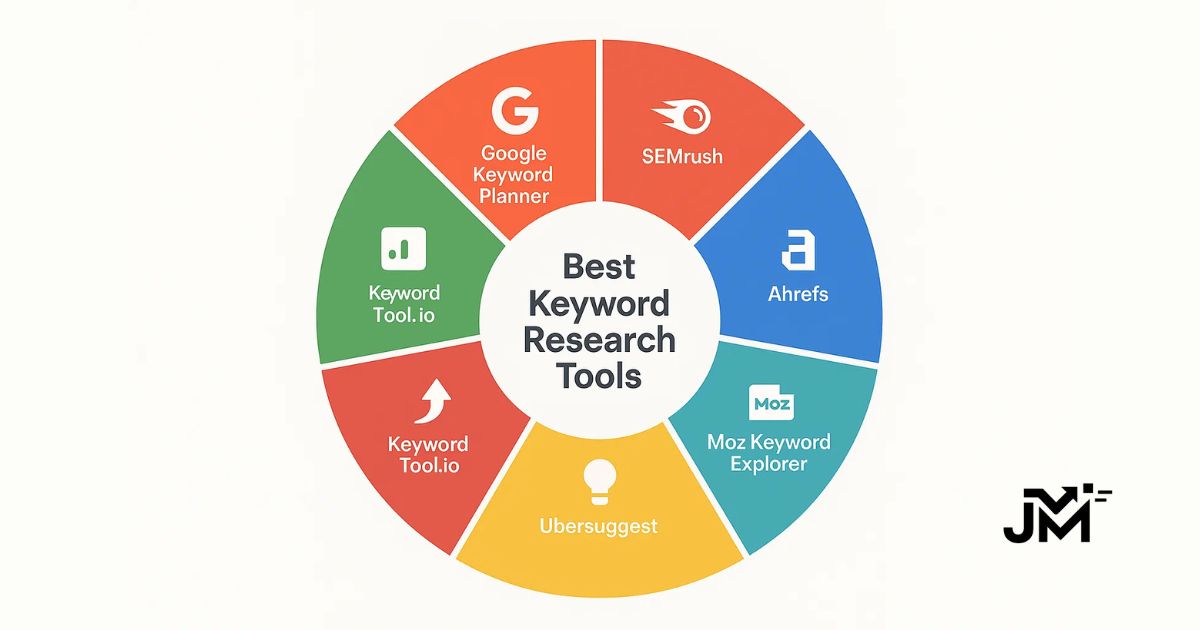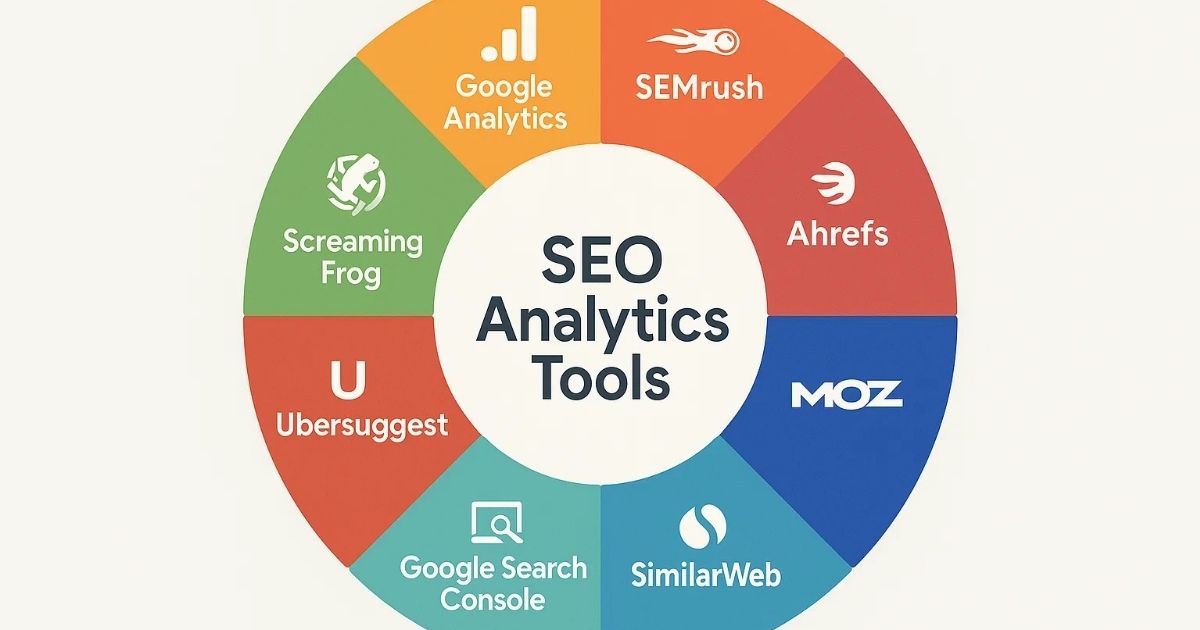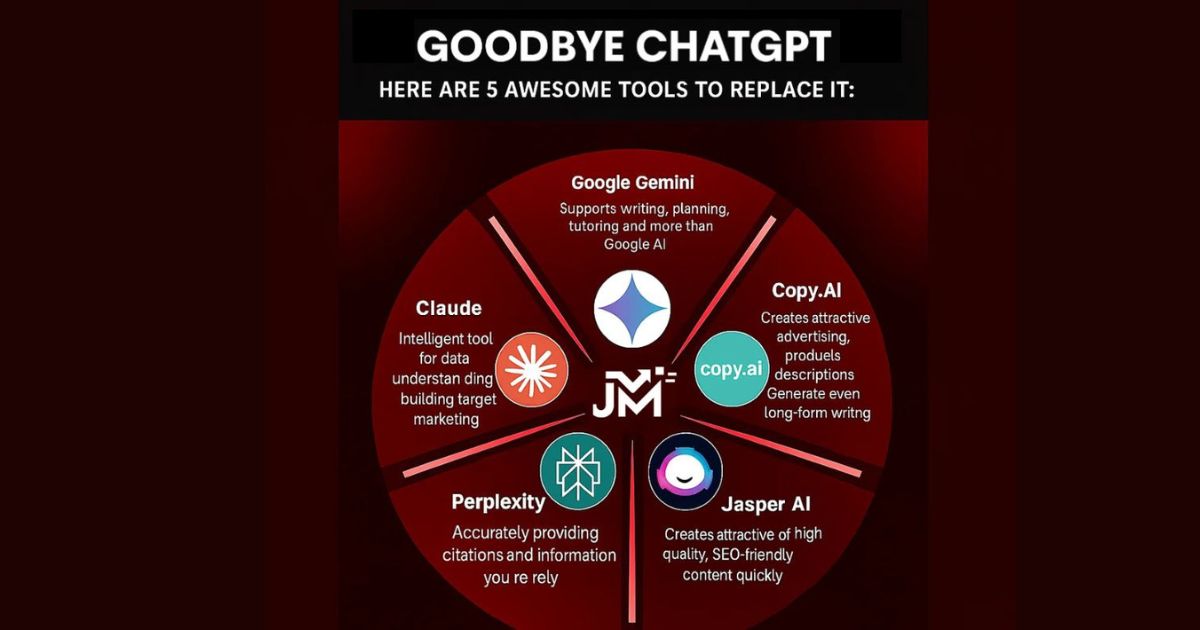Finding the right keywords is the foundation of any successful SEO strategy. Without them, even the best content will struggle to rank. In 2025, competition for search visibility is tougher than ever, which means marketers need reliable insights into what their audiences are searching for. That’s where the best keyword research tools come in.
These platforms go beyond just suggesting search terms—they help you uncover search intent, measure competition, analyze trends, and identify high-value opportunities for growth. In this guide, we’ll explore twelve powerful tools that every digital marketer should consider using this year.
Why Keyword Research Still Matters in 2025
With the rise of AI-driven search, voice assistants, and zero-click results, some marketers wonder if keyword research is still relevant. The answer is a resounding yes. Here’s why:
-
Search intent is evolving. Users expect search engines to understand context, which means you need to optimize for related phrases and semantic clusters.
-
Competition is growing. Millions of new pieces of content are published daily, so standing out requires smarter targeting.
-
Conversions depend on relevance. Using the right keywords ensures you attract visitors who are more likely to engage and buy.
Keyword research tools make this process efficient by turning raw search data into actionable insights.
1. Google Keyword Planner

Still a favorite for many marketers, Google Keyword Planner offers free insights directly from Google. It’s particularly useful for discovering new keyword ideas and estimating search volumes.
The tool provides data on average monthly searches, competition levels, and cost-per-click (CPC). Although it’s primarily designed for advertisers, SEO professionals use it to validate keyword opportunities and plan content strategies. Its integration with Google Ads makes it perfect for businesses running both paid and organic campaigns.
2. Ahrefs Keywords Explorer

When it comes to advanced keyword analysis, Ahrefs Keywords Explorer stands out. It has a massive database of keywords across different search engines, not just Google.
The tool provides detailed metrics like Keyword Difficulty (KD), traffic potential, and click metrics that go beyond simple search volume. Ahrefs also shows the parent topic, giving marketers a clearer understanding of how a keyword fits into a broader content strategy. In 2025, Ahrefs remains one of the best keyword research tools for serious SEO professionals.
3. SEMrush Keyword Magic Tool

SEMrush is known for its all-in-one SEO suite, and the Keyword Magic Tool is one of its most popular features. It organizes millions of keyword ideas into topic-based groups, which makes it easier to build clusters and optimize for intent.
Marketers love SEMrush because it also shows SERP features, keyword difficulty, and competitive density. For those who want to combine keyword research with content planning and competitor analysis, SEMrush is a complete solution.
4. Ubersuggest
Developed by Neil Patel, Ubersuggest is an affordable option for marketers who want both simplicity and depth. It provides keyword ideas, search volume data, seasonal trends, and content suggestions.
One standout feature is its ability to show top-performing content for each keyword, including estimated traffic and backlink counts. For small businesses or startups, Ubersuggest offers a budget-friendly alternative to expensive enterprise tools while still delivering powerful insights.
5. Moz Keyword Explorer
Moz Keyword Explorer is designed for marketers who value simplicity and accuracy. It combines keyword suggestions with Moz’s proprietary metrics like Priority Score, which balances volume, difficulty, and organic click-through rate.
Another strength is its keyword grouping feature, which helps create focused content around related terms. Marketers also benefit from Moz’s clear, user-friendly interface, making it one of the best keyword research tools for beginners and teams without advanced SEO expertise.
6. KeywordTool.io
If you want to go beyond Google, KeywordTool.io is an excellent choice. It pulls keyword suggestions from multiple platforms, including YouTube, Amazon, Bing, and even Instagram.
This makes it especially valuable for marketers working in e-commerce or video content. For example, sellers on Amazon can use it to discover what shoppers are searching for, while YouTubers can optimize their titles and descriptions with trending phrases.
7. AnswerThePublic
Unlike traditional tools that focus only on numbers, AnswerThePublic visualizes keyword ideas in the form of questions, prepositions, and comparisons. It helps marketers understand how people phrase their searches, making it easier to create content that directly answers user queries.
For content marketers and bloggers, this tool is invaluable because it highlights long-tail keyword opportunities that competitors may overlook. In 2025, it’s still one of the best keyword research tools for generating content ideas quickly.
8. Serpstat
Serpstat offers a well-rounded set of features that combine keyword research, site audits, and competitor tracking. Its strength lies in keyword clustering and search intent analysis.
By grouping semantically related terms, Serpstat makes it easier to create pillar content and topic clusters that align with Google’s ranking algorithms. Marketers who want to scale content production efficiently often choose Serpstat for its versatility.
9. Soovle
Sometimes simplicity is powerful. Soovle is a free tool that aggregates keyword suggestions from multiple sources, including Google, Amazon, Wikipedia, and YouTube.
It may not have advanced metrics like search volume or keyword difficulty, but it’s excellent for brainstorming and spotting trends across different platforms. For marketers looking to diversify their keyword strategies, Soovle is a hidden gem.
10. Long Tail Pro
As the name suggests, Long Tail Pro specializes in uncovering long-tail keywords. These are less competitive but often more targeted, making them ideal for attracting high-converting traffic.
Long Tail Pro provides keyword competitiveness scores, helping marketers quickly identify which phrases are worth pursuing. In 2025, it continues to be one of the best keyword research tools for niche websites and affiliate marketers.
11. SpyFu
SpyFu is primarily known as a competitor analysis tool, but it also excels in keyword research. It allows marketers to see which keywords competitors are ranking for and how much they spend on paid campaigns.
By combining organic and paid data, SpyFu reveals valuable keyword opportunities that might otherwise go unnoticed. For businesses in highly competitive niches, SpyFu’s competitor insights are game-changing.
12. KWFinder by Mangools
Finally, KWFinder is a tool praised for its balance of simplicity and power. It offers intuitive keyword analysis, showing search volume, difficulty, trends, and SERP overviews.
Marketers love KWFinder for its clean interface and affordability compared to enterprise platforms. It’s especially good for freelancers and agencies who need actionable keyword data without overwhelming complexity.
How to Choose the Best Keyword Research Tools
With so many options available, how do you know which tools are right for your needs? Here are some quick tips:
-
For beginners: Start with free or affordable tools like Ubersuggest, Soovle, or KeywordTool.io.
-
For content-focused marketers: Use AnswerThePublic or Moz Keyword Explorer to uncover intent-driven queries.
-
For large teams and enterprises: Invest in robust platforms like SEMrush, Ahrefs, or Serpstat.
-
For e-commerce and video: Consider KeywordTool.io or KWFinder to optimize across multiple platforms.
Remember, no single tool provides everything. Many marketers use two or three in combination to cover all aspects of keyword research.
Final Thoughts
In 2025, mastering keyword research is still one of the most important skills for digital marketers. The best keyword research tools help you move beyond guesswork and uncover valuable opportunities that drive traffic, engagement, and conversions.
Whether you’re a beginner experimenting with free tools or an experienced SEO professional investing in premium platforms, the key is to use the insights strategically. Focus on understanding your audience’s intent, optimizing for relevance, and building content that solves real problems.
With the twelve tools highlighted in this guide, you’ll be well-equipped to create data-driven SEO strategies that keep your website competitive in the years ahead.














